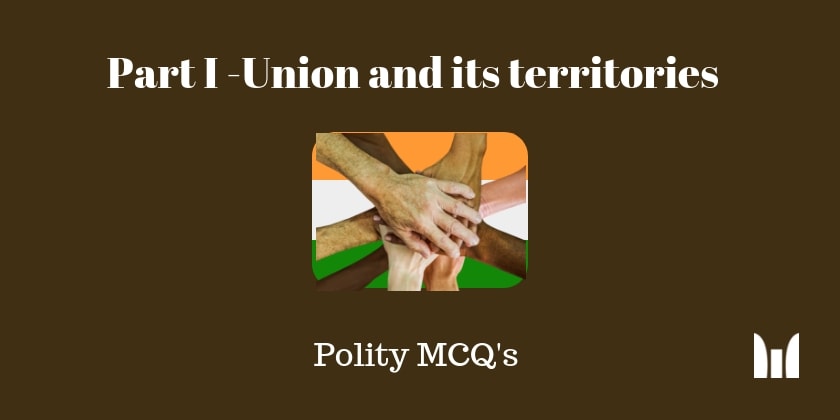11. Who appoints the Chief Minister of Delhi?
(a) President of India
(b) Home Minister
(c) Deputy Governor
(d) None of the following
[toggle]Answer-(a) President of India
Explanation: The President appoints all Ministers including the Chief Minister.[/toggle]
12. Who heads the Union Territory of Delhi?
(a) President
(b) Deputy Governor
(c) Home Minister
(d) a and b both
[toggle]Answer-(a) President[/toggle]
13. In which of the following year Andhra Pradesh was created?
A: 1951
B: 1953
C: 1955
D: 1957
[toggle]Answer-B: 1953[/toggle]
14. Which of the following is correct as the description of India to its constitution?
A: India is a federal Nation;
B: India is a federation of State;
C: India is a union of State;
D: All the above;
[toggle]Answer-C: India is a union of State[/toggle]
15. How many Union Territories India have legislative Assemblies?
A: One
B: Two
C: Three
D: Four
[toggle]Answer-B: Two[/toggle]
16. Which constitutional amendment envisaged Delhi the status of special state?
(a) 91st
(b) 69th
(c) 54th
(d) 73rd
[toggle]Answer-(b) 69th
Explanation: Based on the 69th Constitutional Amendment (1991), Delhi has been given the status of a special state.[/toggle]
17. 9. The Chief Minister of Delhi will give his resignation to……
(a) The President of India
(b) The state’s governor
(c) The Deputy Chief Minister of Delhi
(d) Delhi Vidhan Sabha Speaker
[toggle]Answer-(a) The President of India[/toggle]
18. Who has the right to set up a High Court in any Union Territory?
(a) President
(b) Supreme Court
(c) Parliament
(d) None of the following
[toggle]Answer-(c) Parliament[/toggle]
19) Which of the following are known as Linguistic Provinces Commission?
1) Fazl Ali Commission
2) Dhar Commission
3) JVP Committee
a. 3
b. 1, 3
c. 2, 3
d. All of the above
[toggle]Answer-c. 2, 3
Explanation: So, in June 1948, the Government of India appointed the Linguistic Provinces Commission under the chairmanship of S K Dhar to examine the possibility of it. Jawaharlal Nehru, Vallabh Bhai Patel, and Pattabhi Sitaramayya and hence, was popularly known as JVP Committee. Congressperson of standing, after a 56-day hunger strike for the cause, forced the government in October 1953, to create the first linguistic state, known as Andhra state, by separating the Telugu speaking areas from the Madras state.[/toggle]
20. Which constitutional Amendment of India describe Delhi as a “National Capital Region“?
A: 51st Amendment
B: 69th Amendment
C: 72 Amendment
D: 91st Amendment
[toggle]Answer-B: 69th Amendment[/toggle]

